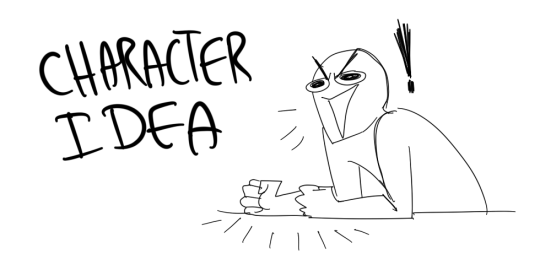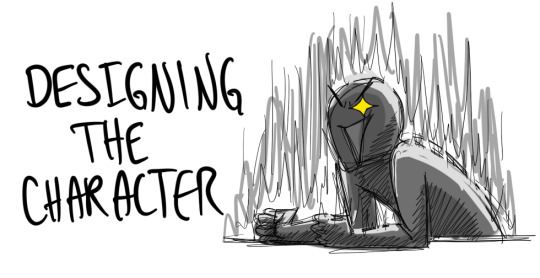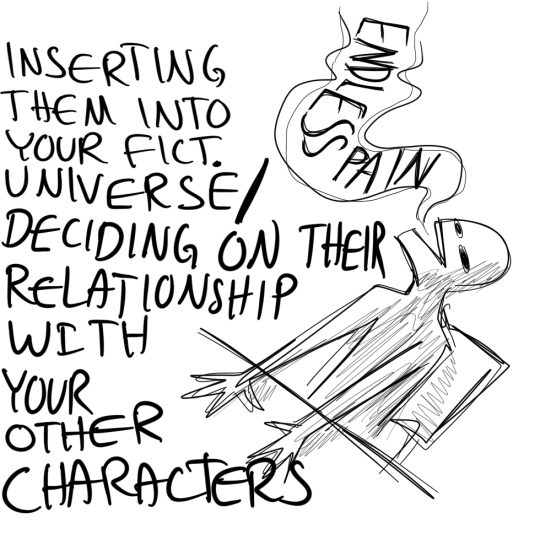This is a blog about writing. Writing tips and writing tricks.
Don't wanna be here? Send us removal request.
Text
On Editing Your Novel

Over twenty-five years ago I began editing professionally. I began by doing volunteer work as an editor for literary magazines, but my first job was for Brigham Young University, where I helped professors raise their work to publishable levels. Many of the people I worked with were scholars with tremendous expertise in their field of study but often they were not practiced writers. Some of them weren’t even native English speakers. So I helped edit articles, textbooks, history books, self-help books, novels, short stories, pamphlets and funding proposals.
Later I went on to editing technical manuals, and from there moved into fiction editing—both short stories and novels. Even when I’m not editing professionally, a day doesn’t go by that I don’t exercise my skills in one way or another.
Here are some key points that I want writers to know:
In most writing groups, authors get a lot of feedback on the errors in their work, but don’t get much feedback on how to actually improve it. As a result, new authors focus on eradicating errors. So what they end up with is a novel that is pretty much unobjectionable. But that’s rather damning. You don’t want to be “okay,” you want your work to be great.
So in your rewrites, take the opportunity to add as many virtues to your work as possible.
Does your novel suffer from weak descriptions? In your first pass, put those descriptions in.
Would your work benefit by having stronger hooks at the opening to each chapter? Make a pass and put in some great hooks.
Could your novel be better if your character had a more distinctive voice, or if you showed more internal dialog? You can make your novel better in each pass.
Do you need to make your characters more decisive, or show their internal pain? Those can be handled in editing passes.
The truth is that there is so much to do to write a good novel, that many novelists find that it is better to focus on it in several passes, in just the same way that a painter creates a masterpiece by laying down the paint in a dozen layers, letting each one dry before working on it again.
Sure, you might find some weaknesses when you’re editing, but you should be more concerned with adding virtues.
Some authors naturally do one or two things really well. For example, Shannon Hale has a gift for creating gorgeous metaphors, and her use of language is lyrical and beautiful. Tolkien had a gift for world creation that was pretty much unequaled at his time. Orson Scott Card is fantastic at creating gripping arguments, showing penetrating insights into his characters’ conflicts. I love George R. R. Martin’s excellence at creating resonance, or Patrick Rothfus’s command of voice, or Dan Well’s control of tone and his gift for finding fascinating ideas.
But in order to become a bestseller, you normally have to develop a number of skills. On a scale of one to ten, you might look at yourself and ask, where am I? Am I at a five when it comes to creating character voices? Am I only at a one when it comes to world creation? Does my work completely lack hooks or foreshadowing?
Keep reading
2K notes
·
View notes
Text
Such a great way of presenting the process!
“Writing a book is so easy” - Volume 3
Read the original viral sensation: Writing a book is so easy The somewhat sensational sequel: Writing a book is so easy - the Sequel
Now, prepare for the third volume, the most in-depth behind-the-scenes of writing books yet…
Every book that you read has a story to tell. Not just the one in the pages, but so too the behind-the-scenes hell.
I documented what writing a book looks like from Day 1 to Release Day. The work never ends. You write wherever and whenever you can.

And when I say write, I mean, you have to WRITE

Like….DON’T STOP.

Here’s a secret: the more you write, the longer the book gets!

Sometimes you’re gonna be absolutely STUMPED. Like the entire universe is just being petty and conspiring against you.

When all else fails, drink coffee. Worship coffee. Sacrifice your first-born child to coffee.

Sometimes you’ll show up at your regular writing spot AND SOMEONE WILL HAVE STOLEN YOUR SEAT, THE STUPID, FAT HOBBITSEES
So you’re forced to write out of your element, totally distracted as you figure out ways to make it look like an accident…

And remember how your teachers always said you’d need to use math everywhere in life? Well, they weren’t wrong…

Every day, you persist. Inching closer. And closer. Every word pushing the story toward its close.

It might take a week, or a month or two or three, but every time you add another 10k, you can’t help but feel a swell of pride.

There will always be the days you miss writing, but that’s absolutely okay! Don’t beat yourself up! You can make time for it. Writing is art, and art takes time, and shouldn’t be rushed.

And one day you’ll sit down and stare at your screen and realize….the end is near. You can feel you’re closing in on those final words, those last sentences with the characters you’ve spent the past year with.

When you write those last words, a wave of relief will slam into you. You might shed some tears, because writing a book is difficult, and finishing the first draft is an incredible feat to achieve. Treat yo self. You deserve it.

Then…..take a break. Take as long a break as you need. Some people might need a month, some a year. Whatever your rhythm is, find it, stick to it, and never give it up.

No matter if you edit by hand or by computer, print out that first draft. Hold it in your hands, feel the weight of the words you wrote. The words that were stuck in your head for months, even years. Flip through those pages and look at what YOU created.
Then, when the time is right, edit that book.

Maybe you’ll finish editing a chapter in a day. Maybe it’ll take a week. For me, it’s usually an hour per page! Edit at your own pace. It’s not a race!





And then…..voila. You’ve edited the first draft!…….

If you have other books out, don’t let them fall to the wayside! Keep marketing, keep telling people about them (and showing them your work on the newest one!!), and get book signings and events whenever you can! Bookstores are ALWAYS looking for authors to feature. Just ask!

And of course, make it fun for yourself, too! Book flare and merchandise? Um, YES PLEASE.

Aaaaaaaaaaand now you need to focus again, and, you know, actually put all those edits in. Which usually turns into an entirely new round of editing in-and-of itself.

Keep putting those edits in….

And more, and more, and more edits…

Did I mention sometimes you’ll need to go to extreme lengths to fit in writing days?

Although art itself is so, so, so rewarding, we’re all still human. Some days will be more difficult than others. Some days, your mind will weigh you down. These can be the hardest days, but push through. Find an anchor and hold tight and take care of yourself.


Other times, you’ll be traveling! Take your writing with you. I find that when I’m on vacation, I’m a much more productive writer! The atmosphere is usually more relaxed. You’re not in a familiar place, so it gets your creative juices flowing stronger!



When you’ve edited your book a few times, FIND BETA READERS. These can be friends, followers on social media, or someone random you meet in your coffee/tea shop! Get fresh sets of eyes looking at your work! They will make suggestions, edits, and faun over your book.

Sometimes they’ll make corny jokes.


You will get a TON of feedback, and you will have to compile them all together, chapter by chapter, reading and considering every single comment and comma.


Your beta readers will love you forever when they finish reading your book. Guaranteed. Always. So in love. Yes.

Eventually, your beta readers will finish, and the countdown to publication will begin…

As you near the end, the Universe might have some surprises in store for you. Me? It took me back to the exact seat and window where I wrote the entire first draft of the first book in the series….a very poetic twist of fate.

Finally, the day will come when every major edit is done. When you’ve skimmed and scanned and combed and proofed. When you have a cover design and formatted all the pages to books, it’s time to order those first copies.


And then….the day comes….when your book finally arrives. You see the mail truck pull up and you see the boxes, and you just KNOW it’s for you.

And then you open them and look inside….

And you get to hold it in your hands for the first time ever…..

And you get to put it next to the other books that come before it….

And then you get to ship some of them out to ARC readers who will be reviewing your book before it’s released!!!!

And then you get order an entire shipment for upcoming book signings, and copies to send out to people who pre-ordered, and seeing them all stacked together will ALWAYS be a beautiful sight. Cherish it. Take a picture to show off to potential readers, that image of YOUR books all stacked together.

This is what writing is like. This is what goes into all those thousands of hours of sitting behind a computer. This is how books come into existence. It’s not the same steps for everyone, but the process for all of us is similar. It’s not easy. You won’t see a dime for your work for years, unless you already have books being sold.
But it’s worth it. Pouring your soul into writing a book, or making music, or graphic art… This is the beauty, the struggle, the dedication, the pain, the hours of lost sleep, the gallons of caffeine, the barista friends you make along the way….
Even though they might catch you in your candid element…..

But you will form a bond with them. They will learn your favorite order, have it ready the moment you walk in the door. And if you ever leave, it will be a heart-wrenching day…

They might give you a keepsake, too, to remember them by….

Stay humble, and remember every moment. Every experience. Appreciate everyone who helped you along the way, from giving you free drinks and food, to all the support and encouragement, to the avid fans who rave about your books. They’re all here for you, following your journey as you write.
For this particular book, the journey was 23 months, from December 2015 to October 2017. It takes a long time, even when you work every single day, and stick to a strict schedule. Some days you won’t want to write at all. Some days you won’t want to stop. That’s okay. Just hold true to your passion, and celebrate your accomplishments.
Don’t let anyone tell you not to write. Don’t let anyone tell you you’re doing it wrong. We all live through the same process, from the great artists to the starving artists. If you want to write a book, this is what it looks like. Though writing a book isn’t easy, the reward of holding it in your hands is worth the days, the months, the years. You will have created something beautiful. You will have created art.
2K notes
·
View notes
Link
Here’s the Writeblr spreadsheet I talked about earlier! The purpose of this is to make it easier for people to find your blog posts about your project, so please definitely fill in the field about what tag you use for your writing. This is intended for any and every writer on tumblr, so if you have a blog where you talk about writing, please add yourself. :)
There’s also a field on here that’s for tag lists. If you have a list of people you tag when you share stuff about your writing, please answer “yes” in that column. That way anyone who wants to be added to your tag list can leave their username in the column after that one– this means you’ll know exactly who to tag in your writing posts.
Please let me know if anything is not working or if you have any suggestions for it.
Edit: I think I found a way to alphabetize, but please try to keep your name/row alphabetically in (or at least near) the right place. That way you’ll still be easy to find until I have the chance to re-sort it by first letter of the username again. :)
724 notes
·
View notes
Text
Payoff

I’ve said before that every story should have an emotional payoff. Yet far too often, I read stories where the payoff is weaker than it should be, or it isn’t there at all.
If you’re writing genre literature—romance, horror, wonder, comedy, thrillers, and so on—then your readers are paying you to arouse an emotional state, and as an author, you’ll succeed based on how well you succeed at creating those emotions.
The problem sometimes is that as authors, we don’t want to be accused of being maudlin or sentimental in our writing. We’ve all read stories where the author tries too hard to get an emotional reaction, and so we back away from powerful material in an effort to show our own restraint.
In other cases, we just let opportunities pass us by.
So here is a little tip for the day. Let’s say that you want to create a powerful emotional climax. Imagine, for example, that you’re writing a romance. Your protagonist has fallen deeply in love with a man, and she’s nearly lost him to another woman. Now, you want to heighten that love: so when he comes back, we find that not only has he returned, he has made some significant change to his life so that she loves him more than ever. You’ve just upped the romance, and he tops it off by begging your protagonist’s hand in marriage. She says “Yes,” and then what happens?
Well, all kinds of things could happen. Too often, that’s the end of the story. But don’t you want to hold that emotion for a bit? Don’t you want to drag out the romance? After all, your reader may have spent ten hours reaching that climax. Don’t you want to give them ten minutes?
So how long is ten minutes? Well, in a book, you’ve got about 250 - 300 words per page, and the average reader happens to read about 300 words per minute. So you as a writer don’t want to stop with your heroine saying “Yes.” You want to draw out those emotional beats for a good ten pages or more.
So you look at ways to heighten the romance near the end. We spend extra time with lingering touches. We have long conversations where perhaps our love interest explains why he held back and realizes now that he was “Oh so wrong.” We confirm to the reader through detail after detail that the love is real. We show their growing love in a hundred different ways.
You don’t have to be simplistic about it. You can create duality. You can have love tinged with regret. You can show love ripening with age. You can add humor and pain and even fear to it all. In other words, it doesn’t have to be simplistic or maudlin, but you do have to give your reader time to remain emotionally engaged. With luck, the emotional payoff will remain with the reader long after he or she has closed the book.
90 notes
·
View notes
Text
derive your fantasy settings from somewhere other than medieval europe you cowards
30K notes
·
View notes
Text
Arabian Little Red Riding Hood with a red hijab
A Japanese Snow White with her coveted pale skin and shiny black hair
Mexican Cinderella with colorful Mexican glass blown slippers
Greek Beauty and the Beast where Beast is a minotaur
Culture-bent fairy tales that keep key canonical characteristics
539K notes
·
View notes
Note
What are common and different things 3rd person limited and omniscient have? I'm trying to understand them better, but can't quite do so. Thank you!
The only real similarity is that they both use character names and third person pronouns. They are two very different narrative POVs.
3rd person limited actually imitates 1st person in that it can only report what the narrator experiences and knows. That’s why it’s called “limited”. Good 3rd limited writing actually imitates 1st person closeness and can directly convey thought as if the character were speaking to the audience, but there are times where the wording has to be tweaked to sound right with 3rd person pronouns.
3rd limited can only convey what’s in the moment. There’s no “but he didn’t see the dead body nearby as he trekked through the forest” because the narrator can’t report on something they didn’t see. 3rd limited is immediate and the narration is stuck inside one character’s head, unless the writer chooses to switch POV (which can only be done at a clear scene break or chapter break).
3rd person limited is generally used for things like:
Stories with multiple POVs, since using 1st person is confusing when there’s a perspective shift. Anyone can be “I”.
To create closeness between the reader and the characters, like being in the character’s shoes rather than watching a movie.
For stories where the plot and strength of story comes from perspective, rather than omniscience.
An omniscient narrator is separate from the story, like a person watching the scene from the sky, and they are not limited to only reporting the thoughts and experience of one character. However, the narrative is not as close as 3rd limited or 1st person. This narrator can mention thought, but it’s best not to dive too far into any character’s head or it risks coming off very “head-hoppy” and can give readers whiplash with too much info. A good omniscient narrator has a distinct voice of their own and should be crafted to give the story a certain feel, not to imitate the ideas and thoughts of any other character.
However, an omniscient narrator does not mean you can skip having a protagonist. Most often, this narrator aligns with the protagonist in a values sense, or they purposefully don’t align to show the problems with the protag’s actions. Remember that this narrator knows everything, so while they have a more objective view and can point things out that the characters may not realize or know, they are still telling the story of the protagonist.
3rd person omniscient is generally used for things like:
Stories where the characters aren’t aware of an aspect that the reader needs to know for the plot to make sense, or things like moral tales where a “moderator” is needed to give clarity to events.
To create distance between the reader and the characters, like watching a movie rather than being in the character’s shoes.
To give a certain tone for the story that doesn’t match the events and/or what the characters feel.
The difference in writing might look something like this:
3rd limited
An angry pop echoed through the library when Aaron stretched, but the pain that radiated from his shoulder wasn’t nearly as strong as the glare Haley shot his way. He mouthed an apology, but she just shook her head and went back to shelving books.
Why was she always so mad at him? Sure, he may have knocked over her carefully-organized cart when he came rushing in, late for work, but he helped pick them up and said he’d buy her lunch to make up for it.
“I’m missing something about her,” he whispered to his colleague, June. They both manned the front desk and could normally talk at a reasonable volume, but anything Haley overheard would probably come back to bite him.
“No,” June said, voice low and quiet. “You just ruined hours of her work by rushing around corners. I’d be pissed too.”
3rd Omniscient
An angry pop echoed through the library when Aaron stretched, but the pain that let him clutching his shoulder wasn’t nearly as strong as the glare Haley shot his way. He mouthed an apology, but she just shook her head and went back to shelving books, thinking about how much of an idiot he was.
Day after day she had to put up with something dumb he did, whether it was failing to look for a clear path before sprinting into a room or thinking that buying lunch was making up for the scare and the mess of books. Hours of hard organizing work, gone.
“I’m missing something about her,” Aaron whispered to his colleague, June. They both manned the front desk and could normally talk at a reasonable volume, but they both knew that Haley wasn’t in a mood to hear their chatter.
“No,” June said, voice low and quiet. “You just ruined hours of her work by rushing around corners. I’d be pissed too.”
Obviously, those are not the only two versions that could be written, but the point is all about narrator perspective. Is it personal and limited to a single narrator? Or general and can touch on everyone? In some passages, the two narrative POVs can come off very similarly, like that first paragraph that arguably didn’t need any altering; some bits of writing are naturally neutral in distance.
Good luck with your stories!
Thinking of asking a question? Please read the Rules and Considerations to make sure I’m the right resource, and check the Tag List to see if your question has already been asked.
103 notes
·
View notes
Text
Fantasy Guide to Addressing Nobility
It can be hard to remember how to properly address your noble or royal characters when writing a fantasy court. Here is a quick guide:
1. King/Queen:
Usually addressed as either “Your Grace” or “Your Majesty”. Consort (married to a ruler and not reigning in their own right) can be addressed the same. Sire or Madam can be used also.

2. Prince/Princess:
They are addressed as “Your Highness”. They are NEVER addressed the same as a King or Queen

3. Duke/Duchess:
These are addressed with “Your Grace”. This was a common term also used by royalty before Henry VIII got to big for his codpiece.

4. Earl (Count)/Countess:
Are almost never referred as the “Earl of Narnia” but “Lord Narnia”.
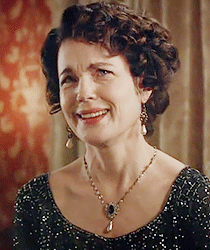
5. Lord/Lady:
An easy one. They are called “My Lord” or “My Lady”.

6. Emperor/Empress:
These may be equal to a King/Queen for status but the have a grander title. They are only addressed as “Your Imperial Highness/Majesty”

I hope this helps when writing your court or fantasy novel.
37K notes
·
View notes
Photo
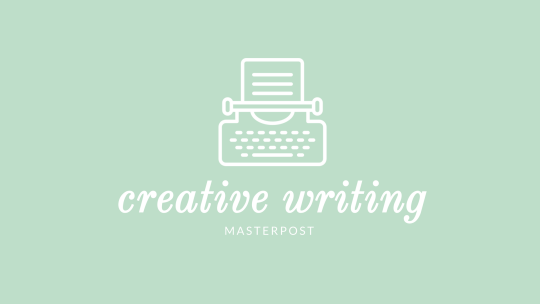
Hey guys! As a writer myself, it’s hard to have a lot of resources for writing in one place. That’s why I decided to create this masterpost, and maybe make more if I find future resources. I hope you like it, and expect to see more masterposts like this in the future!
Generators
Character
Appearance Generator
Archetypes Generator
Character Generator
Character Traits Generator
Family Generator
Job/Occupation Generator, (II)
Love Interest Generator
Motive Generator
Name Generator
Personality Generator, (II)
Quick Character Generator
Super Powers Generator
Names
Brand Name Generator
Medicine Title Generator
Name Generator
Quick Name Generator
Vehicle Generator
Town Name Generator
Plot
First Encounter Generator
First Line Generator, (II)
Plot Generator, (II), (III)
Plot Device Generator
Plot Twist Generator
Quick Plot Generator
Setting/World-Building
City Generator
Fantasy Race Generator
Laws Generator
Pet Generator
Setting Generator
Species Generator
Terrain Generator
Prompts
Subject Generator
”Take Three Nouns” Generator
Word Prompt Generator
Misc
Color Generator
Decision Generator
Dialogue Generator
Journey Generator
Title Generator, (II), (III)
Some Tips
Just a few I found from the writing tips tag!
Writing action / @berrybird
How to create a strong voice in your writing / @collegerefs
How to plot a complex novel in one day! / @lizard-is-writing
8 ways to get past writer’s block / @kiramartinauthor
psa for writers / @dasakuryo
”Write Using Your 5 Senses” / @ambientwriting
How People Watching Improves Your Writing / @wherethetransthingsare
Writing Science Fiction: Tips for Beginners / @fictionwritingtips
Creating Likeable Characters / @authors-haven
Vocabulary
Descriptive words / @somekindofstudent
Words to replace “Said” / @msocasey
Obscure color words / @mintsteelpeachlilac
Words to spice up your stories / @busyibee
Words to describe someone’s voice
Words to Use Instead of Very / @gaybybirth
Touchy Feely Words / @gaybybirth
Some Advice
Stephen King’s Top 20 Rules for Writers
”But my plot isn’t UNIQUE or BIG enough!” / @youreallwrite
8 Things Every Creative Should Know / @adamjk
(How To) Get Over Comparing Yourself to Other Creatives / @adamjk
How to Get Over Common Creative Fears (Maybe) / @adamjk
14 Tips From Stephen King On Writing / @i-can-give-you-prompts
Playlists
Electronic Thoughts / @eruditekid
“Mix About Writing” An Instrumental Mix / @shadowofemirates
Shut Up, I’m Writing! / @ninadropdead
Chill / @endlessreveries
Breathtaking Film Scores / @tweedskirts
Music to Write to Vol. 1: Starlight / @crestadeen
Music for Written Words / @ghoulpatch
Dead Men Tell No Tales / @scamandersnewt
Fatale / @dolcegf
All These Things that I’ve Done / @referenceforwriters
Feeling Soaking into Your Bones / @verylondon
I Can Feel Your Pulse in the Pages / @rphelper
Morally Ambiguous / @scamandersnewt
Wonderwall / @wheelerwrites
Pythia / @mazikeene
Ballet: To Dance / @tanaquil
Websites and Apps
For Writing
ZenPen: A minimalist writing website to keep you free of distractions and in the flow.
The Most Dangerous Writing App: A website where you have to keep typing or all of your writing will be lost. It helps you keep writing…kind of. You can choose between a time or word count limit!
Evernote: An online website where you can take notes and save the product to your laptop and/or smartphone!
Writer, the Internet Typewriter: It’s just you and your writing, and you can save your product on the website if you create an account.
Wordcounter: A website to help check your word and character count, and shows words you’re using frequently.
Monospace: An Android app for writing on the go when you feel the inspiration, but you don’t have your laptop on you!
For Productivity
Tide: An app that combines a pomodoro-esque timer with nature sounds and other noises! (Google Play / Apple Store)
ClearFocus: An Android app with a pomodoro-type time counter to let you concentrate easier and stay productive.
Forest: An app with a time counter to keep you focused and off your phone, and when you complete the time limit, a tree grows in your garden! (Google Play / Apple Store)
SelfControl: A Mac downloadable app that blocks you from distracting mail servers, websites, and other things!
Prompt Blogs
@writeworld
@dialouge-prompts
@oopsprompts
@prompts-for-the-otp
@creativepromptsforwriting
@the-modern-typewriter
@theprofessionalpromptmaker
@writers-are-writers
@otp-imagines-cult
@witterprompts
@havetobememes
@auideas
@putthepromptsonpaper
@promptsonpaper
@fyotpprompts
@otpisms
@soprompt
@otpprompts
@ablockforwritersblock
@awritersnook
Writing Tips Blogs
@writeworld
@anomalously-written
@awritersnook
@clevergirlhelps
@referenceforwriters
@whataboutwriting
@thewritershelpers
@nimblesnotebook
@slitheringink
101K notes
·
View notes
Text
TRYING TO COME UP WITH NAMES FOR MY FANTASY CHARACTERS

185K notes
·
View notes
Photo



Facebook / Twitter / Ko-fi / Buy the book
9K notes
·
View notes
Text
“if I write it into existence, then I have to deal with its imperfection, so I better not write it at all”
is a current mood that I could well do without because this thing is not even difficult to write, I just need to put down the words
*insert scream.gif*
29 notes
·
View notes
Text
Dudes, just write. Stop asking me if you should start/continue/finish what you’re writing despite having x, y, or z problem. If you want to write I am in NO WAY authorized to tell you when to stop/start. That’s up to you and always will be.
If you think “no one will ever genuinely like this” you are 100% wrong. 100%. Think about all the trash out there that has fans. I wrote stuff when I was twelve that had more genuine fans among my family/classmates than ANYTHING I never shared with another living soul. It’s impossible to write something no one will like.
If you think “I’ll never finish it so why even bother?” you’re only depriving yourself, man. That’s like saying, “I like this cookie, but I can’t eat the whole bag. Guess I won’t even try one.” ????? Just write the story, to hell with endings. Some of the best works in the world went unfinished by the author/composer/architect, yet we admire the heck out of them. Maybe, instead of thinking you’ll never finish something, tell yourself this is the one you will finish (and repeat it until you do).
If you feel “this hurts to write, I’m too close to the subject material” either set it aside or full speed ahead. You MUST know how many classics, prize winners, and life changers came from someone’s very real pain and experience. Addicts, traumatized persons, victims, quite often they find solace and healing in writing about their experiences. Most importantly, so do their readers.
If you want to write, write. Otherwise only you are standing in the way of what you want.
19K notes
·
View notes
Text
Why I can’t tell you what to write in your book:
(Or give you lists of options or ideas.)
1. It’s your story — Your know it better than I ever will.
I’m going to use an ask I received recently to explain this. Someone in need of ideas for their story wanted to know how to kill their character in the most gruesome way possible. Now, I personally have a secret fear of the garbage disposer. That’s my version of a gruesome death. But maybe that’s not something the asker thinks is gruesome at all. Maybe there are no machines of twirling blades in their story. Maybe their target audience isn’t here for that sort of death.
My answer isn’t necessarily the right answer. It’s just an option in a long string of possibilities, in which the right one is simply the one which fits best for the story — a story I know next to nothing about.
2. It’s your story — You’ll need a lot more than I can give.
Going back to the above example, not only would my answer not be the “right” answer, but it’s also a typical answer in a long list of answers which aren’t all that hard to come up with when you learn how to brainstorm.
As a writer (who will continue to write books and will continue to need ideas) you absolutely must learn how to brainstorm. There’s no way around this.
You, the writer, have to figure out a way to kick your own brain into gear, and make lists of idea that might work and then analyse each of them to decide what’s the best option for the story you’re trying to tell.
3. It’s your story — And I’m not your co-writer.
I did this work for my own stories already. I put in the effort, the time — hours and hours of it. In fact, I spent over 32 hours the past two weeks brainstorming for and outlining Ash From Stars and Flowers From Bone. I can’t outline your book too, and certainly not for free.
Does this mean you shouldn’t ever get help with your outlining or ideas?
Of course it doesn’t! But the people you should be getting help from are people who have personal relationships with you and your works. If you’re going to directly ask someone for advice on what exactly should happen in your story, you desperately need someone who’s already very familiar with your writing in general, with the current project you’re working on, and with what you mean to achieve with that project. And you should know their own writing well enough that you can (and do) return the favor.
I can teach you how to structure a plot and what character development entails and why good pacing works the way it does, but I’m just a teacher, teaching something that, at the end of the day, is an art form. Like all art forms, there’s no right or wrong answers.
That’s why writers need friends. They need beta readers. They need people from their specific audience who are invested in their work and understand it inside and out, who can tell them what works and what doesn’t work for their particular story.
So go make those friends. Because they will do so much more for you than I ever could.
1K notes
·
View notes
